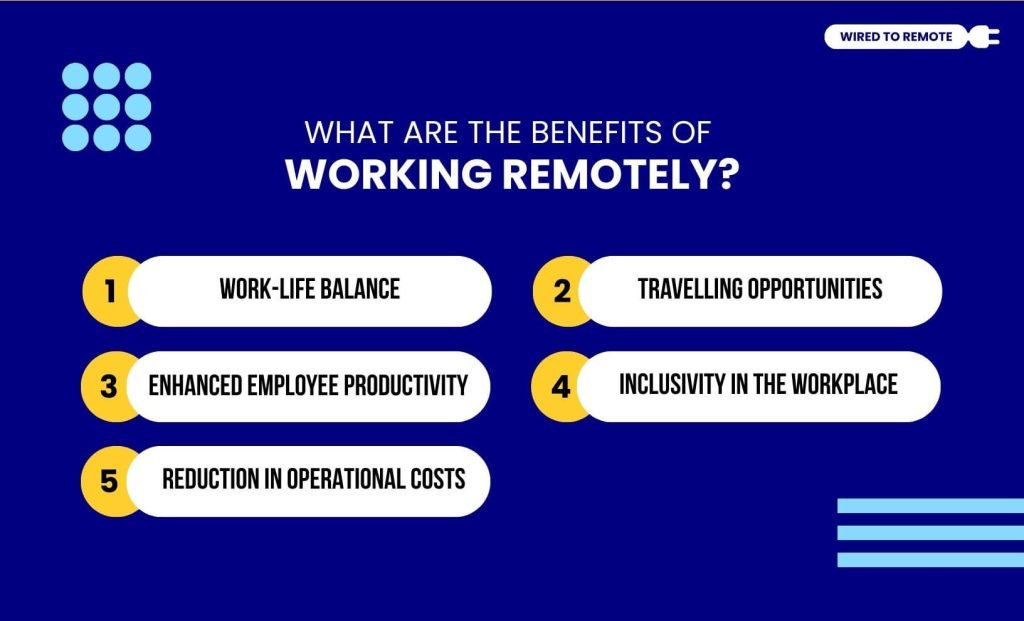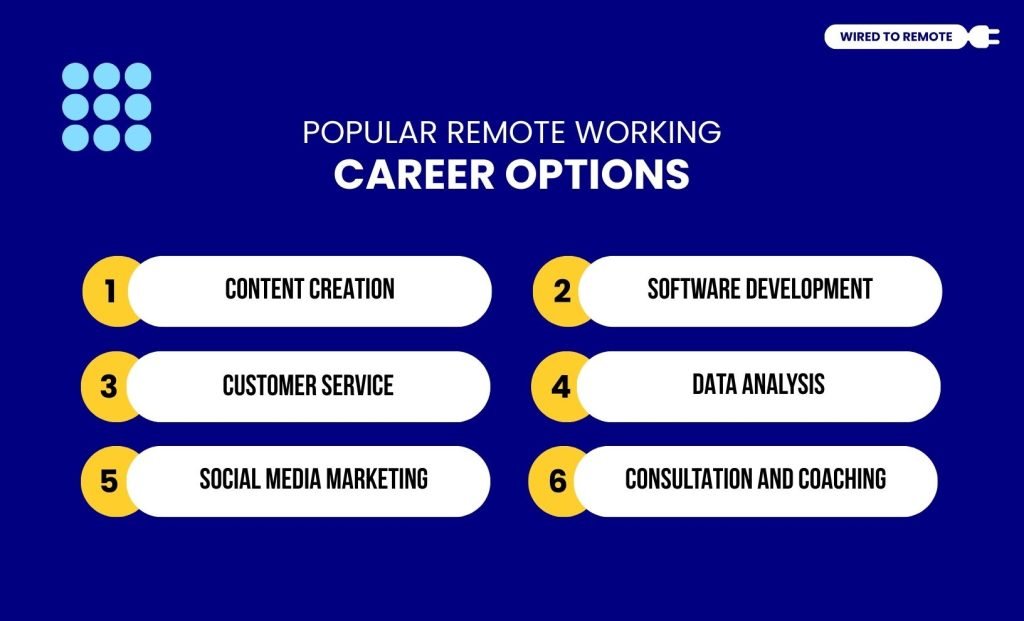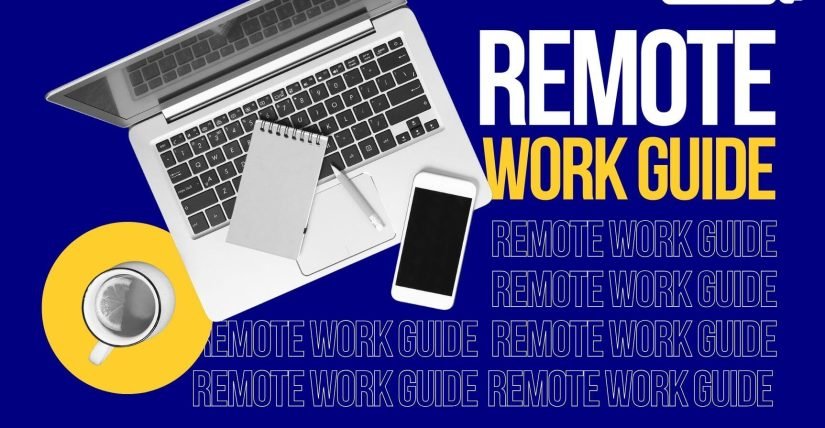Gone are the days when you had to sit in your office cubicle and stare at the computer screen for long hours. The traditional 9-to-5 work culture is rapidly transforming with the advent of remote work options.
Not only employees, but companies are also switching to a hybrid or fully work-from-home mode to run their operations. Even though previously they used to believe that remote working affects productivity and performance, the forced remote working during the pandemic proved them wrong.
With countless studies and evidential company reports, it is quite clear that remote work essentially improves the performance of employees. So, naturally, companies have started to shift to remote or hybrid work cultures.
And, in 2025, remote work has become a buzzing corporate lingo with numerous job portals bubbling with opportunities. So, if you are starting your career journey or looking to change your career path, it is the perfect time to switch to remote working.
But, how to start working remotely? Well, no need to worry. We have brought you the complete remote work guide that will help you to navigate through this new era of corporate working easily.
Keep reading to know more!
What is Remote Work?

Remote work refers to the flexible work arrangement where the employees can perform their roles without physically coming to the office. Most of the operations in remote work are performed using advanced technologies and online tools.
So, in a typical remote work setting, you won’t need to travel to the office to perform your duties. You can choose your desired work location as the arrangement provides flexibility of time and location.
Moreover, in remote work, you can choose to work from the comfort of your home or any vacation house as long as you have a stable internet connection. Since most of the work is performed online, it is important that you have a stable network service.
What are the Benefits of Working Remotely?

Remote work has many benefits over traditional work culture. No wonder it is rapidly snatching away the spotlight in the corporate world. Some of these benefits include:
1. Work-Life Balance:
With remote work, you can easily balance your work and your personal life. You can choose a specific time frame from your daily schedule to work and utilize the rest of the time to do personal work.
Moreover, as you won’t have to commute to the office, you will feel less exhausted. So, you can spend your time exploring various hobbies and socializing with your family and friends without feeling tired.
2. Travelling Opportunities:
One of the best things about remote work is the opportunity to travel. With its location flexibility, you can travel around and visit your favorite places while carrying your work in your bag.
Moreover, you can also move to your favorite country to live your dream life as a digital nomad. But, for that, you will need to know about the digital nomad visas before travelling.
3. Enhanced Employee Productivity:
Surprisingly, remote work enhances employee productivity and performance. When you get the authority to choose how and when you work, you become more responsible. So, you take on your role more seriously with accountability.
Also, remote work gives you the perfect work-life balance. So, you no longer have complaints about how your office is draining your energy. And, you can focus both on your life and your work without feeling exhausted.
4. Inclusivity in the Workplace:
A cool benefit of remote work is that it ensures an inclusive workplace. With remote work, employees can join the company from different global locations. This helps in bringing in people from multiple cultures and ethnicities under one workplace.
Moreover, when the work culture is inclusive, your innovation and growth ideas improve with diverse insightful inputs. So, as a whole, your organization grows and creates a global brand value.
5. Reduction in Operational Costs:
When offices are out of the equation, you can reduce a huge chunk of the operational costs. With remote working options, you no longer need to provide an office space for your employees. They can all work from different locations.
So, you can save a large sum of money and utilize it to invest in growth projects. This is beneficial in both ways. It will help your company to grow and your employees to enjoy the perfect work-life balance without complaints.
Fully Remote Work vs. Hybrid Work
It is a common misconception that remote work and hybrid work cultures are the same. But that is not at all true. There are significant differences between the two. Some of these differences are:
| Factors | Fully Remote Work | Hybrid Work |
|---|---|---|
| Work mode | In fully remote work, employees can work from different locations. | In hybrid work, employees can work in the office as well as outside the office. |
| Work Culture | Fully remote workers perform their tasks from locations outside the office. | Hybrid workers perform their tasks partially from the office and partially from outside. |
| Location | Workers can live in any location and do their work. | Workers need to stay near the office to travel there when required. |
| Diversity in Employees | Also, fully remote teams have diverse employees from around the world. | Hybrid teams do not have diverse employees. |
| In-Office Visits | Fully remote workers do not need to visit the office for work. | Hybrid workers need to visit the office frequently. |
| Time Flexibility | There is flexibility in time in fully remote work options. | There is no flexibility in time in hybrid work. Workers need to work for a specific time frame, either from the office or outside. |
Are Fully Remote Teams Good for Organizations?

With the shift in the work culture, fully remote teams are gaining popularity. Companies are preferring them for their enhanced performance, diverse ideas, and improved efficiency.
So, are fully remote teams good for organizations? To answer this question simply, not really. Just like there are advantages of remote working, there are also many disadvantages. And, companies are reluctant in shifting to fully remote work because of them.
Some of the disadvantages of fully remote teams include workplace miscommunication, inefficient time management, and delays in meeting deadlines.
Due to the difference in time zones, remote workers face challenges in communicating and meeting deadlines. However, to mitigate these issues, companies are employing effective communication technologies and project tracking tools.
Popular Remote Working Career Options

If you want to venture into remote work, here are some popular and common remote working career options. These will help you to have a stable career while enjoying the work-life balance.
1. Content Creation
With the rise in digitalization, content creation has become one of the most sought-after remote work options. If you have the skills to create engaging and relevant digital content for brands and organizations, you can easily work in the content creation field.
2. Software Development
As a software developer, you will need to make interactive websites and apps. This work requires focus and attention to detail for debugging the projects.
So, if you have a knack for computer applications and website development, you can give this a shot. Also, most remote organizations are always on the lookout for a good software developer, so they’re in huge demand.
3. Customer Service
Working in customer service or telecommunications is another common remote work option. For this role, you don’t need to travel to your office and sit at the computer.
If you have a stable internet and a laptop, you can start working from anywhere. Moreover, many working professionals also work in this sector to have a passive income alongside their main earnings.
4. Data Analysis
The advancement in technology has popularized data collection and analysis as a primary operation for businesses. So, remote organizations always look for data analysts and data entry specialists to help them collect and evaluate huge datasets.
Moreover, if you have the skills to analyze data and create insightful dashboards and company reports, you can try this career option. Also, there is a great opportunity for growth in this field. So, you can build a good career around data evaluation.
5. Social Media Marketing
Social media and digital media marketing are the new generation marketing strategies that companies are using to increase sales and consumer base. This field of work requires creativity and a complete understanding of the metrics of social media platforms.
So, if you like making campaigns and social media engaging posts, you can upskill yourself by getting a digital marketing certificate. This will help you to get a remote job as a digital marketing specialist.
6. Consultation and Coaching
Coaching or teaching can be another popular way to earn without commuting to the office. Now that classrooms have changed from traditional rooms to digital spaces, many organizations are hiring online teachers and coaches to teach foreign students.
So, you can teach foreign students from the comfort of your home. Also, consultation roles are becoming remote with more and more organizations shifting their work culture. As a consultant, you will need to give effective suggestions and solutions to your clients.
Things to Keep in Mind About Remote Working
Before you jump into this new remote work culture, you need to keep in mind some essential things. For instance, to ensure that you are working productively in a remote work setting, you should have a dedicated work space with all the essential tech items.
Moreover, you need to know how to use the various communication technologies and project management tools. This will ensure that you are working efficiently in a remote culture.
Now that you have a complete remote work guide, you can easily explore a career that provides the perfect work-life balance. Evaluate your core skills and interests to apply for a remote work role. And, travel with your work to your desired location!





Leave A Comment